
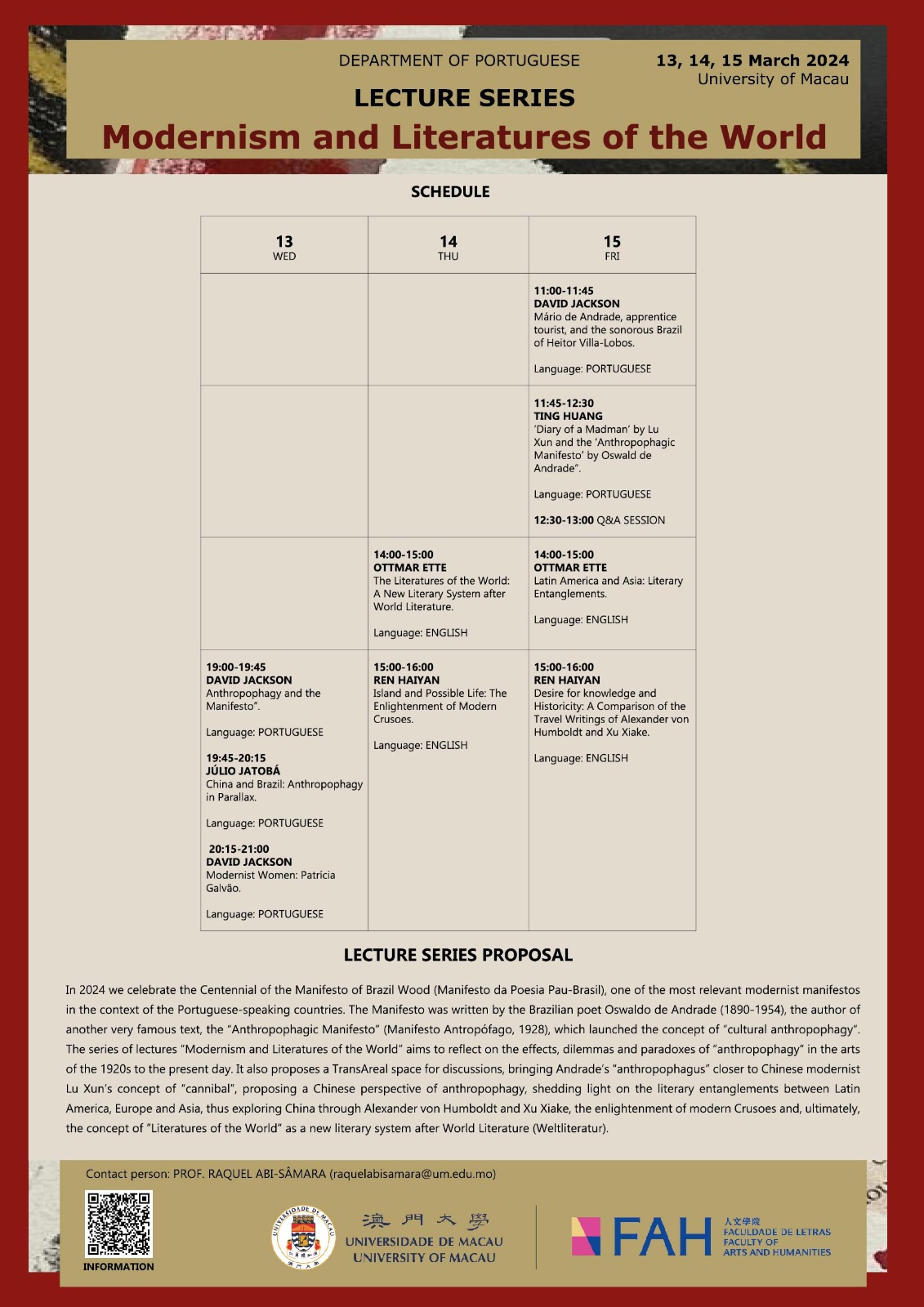
FAH-DPORT: Lecture Series “Modernism and Literatures of the World” from 13-15/03/2024
2024-03-13 @ 9:00 am ~ 2024-03-15 @ 8:00 pm
We are most pleased to invite all to attend the following lecture series from March 13 to 15, 2024, at the University of Macau.
DEPARTMENT OF PORTUGUESE
LECTURE SERIES
“Modernism and Literatures of the World”
March 13, 14, 15, 2024
University of Macau
Guest-speakers: Prof. David Jackson (Yale University), Prof. Ottmar Ette (Potsdam Universität), Prof. Ren Haiyan (Hunan Normal University), Dr. Ting Huang (Communication University of China), Dr. Júlio Jatobá (University of Macau)
In 2024 we celebrate the Centennial of the Manifesto of Brazil Wood (Manifesto da Poesia Pau-Brasil), one of the most relevant modernist manifestos in the context of the Portuguese-speaking countries. The Manifesto was written by the Brazilian poet Oswaldo de Andrade (1890-1954), the author of other very famous text, the “Anthropophagic Manifesto” (Manifesto Antropófago, 1928), which launched the concept of “cultural anthropophagy”. The series of lectures “Modernism and Literatures of the World” aims to reflect on the effects, dilemmas and paradoxes of “anthropophagy” in the arts of the 1920s to the present day. It also proposes a TransAreal space for discussions, bringing Andrade’s “anthropophagus” closer to Chinese modernist Lu Xun’s concept of “cannibal”, proposing a Chinese perspective of anthropophagy, shedding light on the literary entanglements between Latin America, Europe and Asia, thus exploring China through Alexander von Humboldt and Xu Xiake, the enlightenment of modern Crusoes and, ultimately, the concept of “Literatures of the World” as a new literary system after World Literature (Weltliteratur).
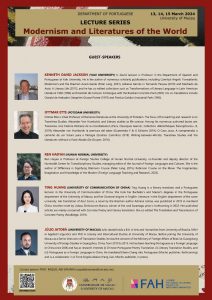
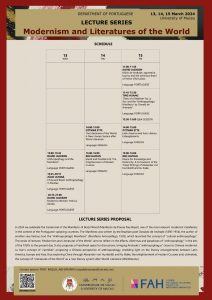
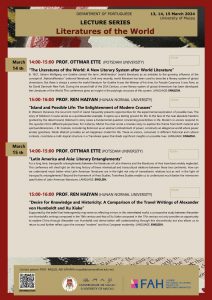
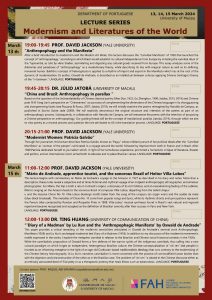
|
March 2024 Lecture Series MODERNISM AND LITERATURES OF THE WORLD |
||
| 13/ 03 – WED – E21-G035 | 14/03 – THU – E21-G035 | 15/03 – FRI – E4-1061 |
|
19:00-19:45 David Jackson “Antropofagia e o Manifesto” 19:45-20:15 Júlio Jatobá “China e Brazil: Antropofagia em paralaxe” 20:15-21:00 David Jackson “Mulheres modernistas: Patrícia Galvão” Language: Portuguese |
14:00-15:00 Ottmar Ette “The Literatures of the World: A New Literary System after World Literature”
15:00-16:00 Ren Haiyan “Island and Possible Life: The Enlightenment of Modern Crusoes”
Language: English
|
11:00-11:45 David Jackson “O ‘turista-aprendiz’ de Mário de Andrade” e o Brasil sonoro de Villa-Lobos” 11:45-12:30 Ting Huang “O ‘Diário de um louco’ de Lu Xun e o ‘Manifesto Antropófago’ de Oswald de Andrade” Language: Portuguese 14:00-15:00 Ottmar Ette “Latin America and Asia: Literary Entanglements” 15:00-16:00 Ren Haiyan “Desire for knowledge and Historicity: A Comparison of the Travel Writings of Alexander von Humboldt and Xu Xiake” Language: English
|
ABSTRACTS
ABSTRACT 1 (PROF. OTTMAR ETTE, POTSDAM UNIVERSITY)
The Literatures of the World: A New Literary System after World Literature
In 1827, Johann Wolfgang von Goethe coined the term „Weltliteratur“ (world literature) as an antidote to the growing influence of the concept of „Nationalliteratur“ (national literature). Until very recently, world literature has been used to describe a literary system of global dimensions. But there is always a center for world literature: for Goethe it was the Weimar of his time, for Pascale Casanova it was Paris, as for David Damrosh New York. During the second half of the 20th Century, a new literary system of global dimensions has been developed: the Literatures of the World. This conference gives an insight in the polylogic structure of this system.
ABSTRACT 2 (PROF. OTTMAR ETTE, POTSDAM UNIVERSITY)
Latin America and Asia: Literary Entanglements
For a long time, transpacific entanglements between the literatures of Latin America and the literatures of Asia have been widely neglected. This conference will shed light on the long history of these intertextual and transcultural relations between these two continents. How can we understand much better what Latin American literatures are in the light not only of transatlantic relations but as well in the light of transpacific entanglements? Beyond the framework of Area Studies, TransArea Studies enable us to understand much better the interwoven specificities of Latin American literatures.
ABSTRACT 3 (PROF. REN HAIYAN, HUNAN NORMAL UNIVERSITY)
Island and Possible Life: The Enlightenment of Modern Crusoes
In Western literature, the recurrent motif of island frequently presents opportunities for the experimental exploration of possible lives. The story of Robinson Crusoe serves as a quintessential example. It opens up a testing ground for life. In the face of the near absolute freedom granted by the desert island, Robinson’s story raises a fundamental question concerning possibilities in life. Modern re-visions respond to this question from different perspectives. For instance, Michel Tournier wrote a Uranian story to explore the theme from both material and spiritual dimensions. J. M. Coetzee, considering Robinson as an abstract embodiment of power, constructs an allegorical world where power erodes goodness. Derek Walcott provides an art-happiness model for life. These re-visions, conceived in different historical and cultural contexts, constitute a multi-logical structure in a TransAreal space that sheds significant insights on possible lives.
ABSTRACT 4 (PROF. REN HAIYAN, HUNAN NORMAL UNIVERSITY)
Desire for Knowledge and Historicity: A Comparison of the Travel Writings of Alexander von Humboldt and Xu Xiake
Supported by the belief that heterogeneity may serve as reflecting mirrors in this interrelated world, a comparative study between Alexander von Humboldt’s writings composed in the 19th century and that of Xu Xiake composed in the 17th century not only provides an opportunity to explore China through Alexander von Humboldt and derive better self-understanding through this discontinuity but also allows us to return to and further reflect upon the concept “modern” and thus European modernity.
ABSTRACT 5 (DR. TING HUANG, COMMUNICATION UNIVERSITY OF CHINA)
‘Diary of a Madman’ by Lu Xun and the ‘Anthropofhagic Manifesto’ by Oswald de Andrade
This paper provides a critical rereading of the modernist sensibilities articulated in Oswald de Andrade’s seminal work Anthropophagic Manifesto (1928) and Lu Xun’s archetypal modernist text Diary of a Madman (1918). In addition to my discussion of the modernist movement’s motifs expressed in the works, I explore the metaphor cannibal in relation to the Brazilian and Chinese social-historical contexts in the 1920s.
While the cannibalistic proposition of Oswald forms a firm defense of the warrior spirits of the indigenous cannibals, thus calling into a new cultural paradigm on which forges an independent, heterogenous Brazilian culture, the Chinese conceptualization of “chi ren” (eat people) is invoked as an informing metaphor in the light of an age-old Confucian-based traditionalistic ideology that runs contrary to the modernizing of the Chinese literary historiography. In Lu Xun’s narrative, cannibalism is more concerned with the practice of commodified human bodies than with the digestion and (re)construction of the other as in the Brazilian case. The problem of “chi ren” is viewed in the Chinese discourse either as an ethically advocated deed of filial piety or as a therapeutic potency that heals illness such as tuberculosis.
ABSTRACT 6 (PROF. KENNETH DAVID JACKSON, YALE UNIVERSITY)
Anthropophagy and the Manifesto
After a brief introduction to modernism and the Modern Art Week, this lecture discusses the “Cannibal Manifesto” of 1928 that launched the concept of “anthropophagy,” according to which Brazil would establish its cultural independence from Europe by imitating the cannibal ritual of the Tupinambá, as told by Hans Staden, assimilating and digesting any cultural goods received from Europe. This essay analyzes some of the dilemmas and paradoxes of “anthropophagy” as a revolutionary theory, while describing its ties with magical nature as well as its defining, irreverent humor. Bakhtin’s concept of heteroglossia is applied to a rhythm of import and export in the Manifesto which lies at the root of the dynamic of modernization. Its author, Oswald de Andrade, is described as an intellectual between cultures applying Silviano Santiago’s theory of the “in between.”
ABSTRACT 7 (PROF. KENNETH DAVID JACKSON, YALE UNIVERSITY)
Modernist Women: Patrícia Galvão
Through her journalism, this lecture describes Patrícia Galvão, known as “Pagu,” whose militant pursuit of her political ideals after the “Cannibal Manifesto” as “woman of the people” culminated in a voyage around the world, followed by imprisonment both in France and in Brazil. After 1940 Patrícia dedicated herself to journalism which, in light of her tumultuous experience, promoted a humanistic critique of literature, theater and politics, and an international vision aimed both to educate and to place Brazilian values.
ABSTRACT 8 (PROF. KENNETH DAVID JACKSON, YALE UNIVERSITY)
Mário de Andrade, apprentice tourist, and the sonorous Brazil of Heitor Villa-Lobos
This lecture begins with commentary on Mário de Andrade’s voyage to the Amazon in 1927 as described in his diary and notes. More than a description, these notes reveal a subjective and at times fictional and mythical voyage of an incipient anthropologist, ethnographer, and amateur photographer. For Mário, the trip is both a return to Brazil’s origins, a discovery of its rich folklore, and an overwhelming feeling of the sublime. Mário’s singing on the Amazon leads to the sonorous Brazil of composer Villa-Lobos, departing from the ballet Uirapuriu and the massive Choro No 10. Villa-Lobos develops motifs taken from the song of the uirapuru (an organ wren) and the azulão da mata (blue-black Grosbeak). The melodies of Choro No. 10 come from popular songs and lyrics, while its rhythmic chants and syncopations represent the Parecis tribe contacted by Rondon and Roquette Pinto in 1908. Villa-Lobos’ musical syntheses found in Brazil’s vast natural and regional repertoire became recognized and accepted as the definition of Brazilian sonority after their success in Paris and New York.
ABSTRACT 9 (DR. JÚLIO JATOBÁ, UNIVERSITY OF MACAU)
China and Brazil: Anthropophagy in parallax
Based on the question of the (in)translatability of Chinese classical poetry (Mao Dun, 1922; Gu Zhengkun, 1990; Jatoba, 2013, 2019) and Chinese poet 杨炼 Yang Lian’s perspective on “Chineseness” as a process of complementing the dimensions of the Chinese language in its zhongguoxing and zhongwenxing facets (see Pozzana & Russo, 2007; Jatobá, 2019), we will initially examine the poems reimagined by Haroldo de Campos, as published in Escrito Sobre Jade (2009). We will explicitly deconstruct the original structure and intention of the poems as part of an anthropophagic process. Subsequently, in collaboration with Haroldo de Campos, we will reexamine the poems with the intention of proposing a Chinese perspective on anthropophagy. Our guiding thread will be the concept of translational parallax (Jatobá, 2019), through which we aim to view poetry as a visceral process and question the role attributed to AI in the translation process.
SHORT BIOGRAPHIES
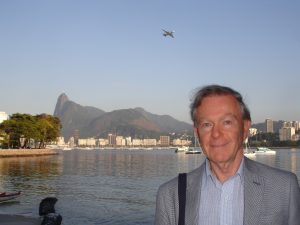 KENNETH DAVID JACKSON (YALE UNIVERSITY)
KENNETH DAVID JACKSON (YALE UNIVERSITY)
David Jackson is Professor in the Department of Spanish and Portuguese at Yale University. He is the author of numerous scholarly publications, including Cannibal Angels: Transatlantic Modernism and the Brazilian Avant-Garde (Peter Lang, 2021), Adverse Genres in Fernando Pessoa (2010) and Machado de Assis: A Literary Life (2015), and he has co-edited collections such as Transformations of Literary Language in Latin American Literature 1960 (1996) and Haroldo de Campos: A Dialogue with the Brazilian Concrete Poet (2005). His co-translations include Oswald de Andrade’s Seraphim Grosse Pointe (1979) and Patrícia Galvão’s Industrial Park (1993).
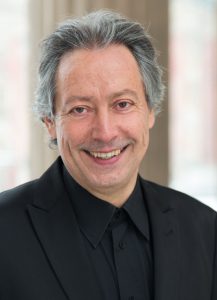
OTTMAR ETTE (POTSDAM UNIVERSITY)
Ottmar Ette is Chair Professor of Romance literatures at the University of Potsdam. The focus of his teaching and research is on TransArea Studies, Alexander Von Humboldt, and Literary studies as life science. Among his numerous authored books are: TransArea. Une histoire littéraire de la mondialisation (Paris, Classiques Garnier, Collection «Bibliothèques francophones», 8, 2019); Alexander von Humboldt: la aventura del saber (Guatemala: F & G Editores 2019); O Caso Jauss. A compreensão a caminho de um futuro para a filologia (Goiânia: Caminhos 2019). Writing-between-Worlds: TransArea Studies and the Literatures-without-a-fixed-Abode (De Gruyter, 2016).

REN HAIYAN (HUNAN NORMAL UNIVERSITY)
Ren Haiyan is Professor at Foreign Studies College of Hunan Normal University, co-founder and deputy director of the Humboldt Center for Transdisciplinary Studies, managing editor of 《外国语言与文化》 and Journal of Foreign Languages and Cultures. She is the author of Différance in Signifying Robinson Crusoe (Peter Lang, 2015), Robinson Crusoe on the Move: The Fragmentary Imagination and Knowledge of the Modern (Foreign Language Teaching and Research, 2023).

HUANG TING (UNIVERSITY OF COMMUNICATION OF CHINA)
Ting Huang is a literary translator and a Portuguese lecturer in the University of Communication of China. She took her Bachelor’s and Master’s degrees in the Portuguese department of the University of Macau, and her Doctoral degree in English Literature in the English department of the same university. Her translation of Azul Corvo, a novel by the Brazilian author Adriana Lisboa, was published in 2019 in mainland China. Another novel by Lisboa, Sinfonia em Branco, winner of the José Saramago prize is forthcoming in 2022. Her published articles are mainly concerned with Concrete Poetry and literary translation. She co-edited The Translation and Transmission of Concrete Poetry (Routledge, 2019).
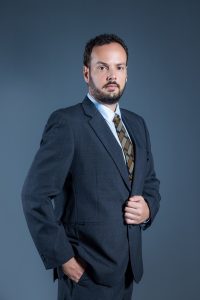
JÚLIO JATOBÁ (UNIVERSITY OF MACAU)
Julio Jatobá holds a B.A. in Arts and Humanities from University of Brasilia, MAH in Applied Linguistics and PhD in Literary and Intercultural Studies at University of Macau. Before joining the University of Macau as a Senior Instructor of Translation Studies, he was the Lecturer of the Ministry of Foreign Affairs of Brazil at Guangdong University of Foreign Studies in Guangzhou, China, from 2010 to 2015. He has been teaching Portuguese as a Foreign Language in China since 2006 and has as research interests (i) Chinese-Portuguese Poetry Translation, (ii) Literary Translation Studies, and (iii) Portuguese as a Foreign Language in China. He translated Eileen Chang into Portuguese (Mocho publisher, forthcoming) and is a collaborator in A Torre Erigida Abaixo (Yang Lian, Mocho publisher, in press).

